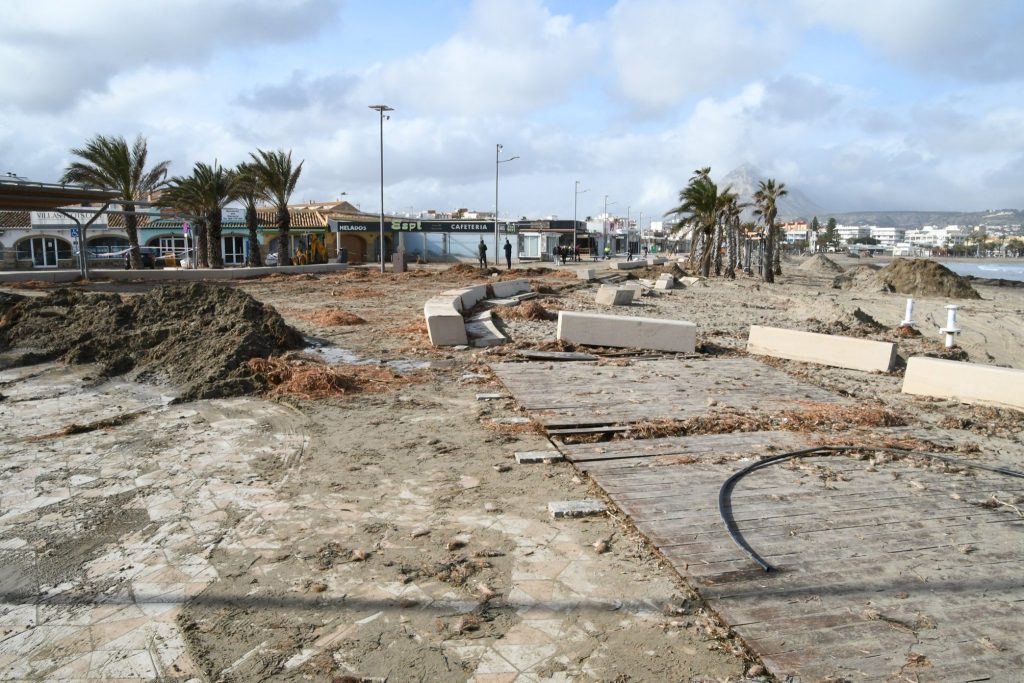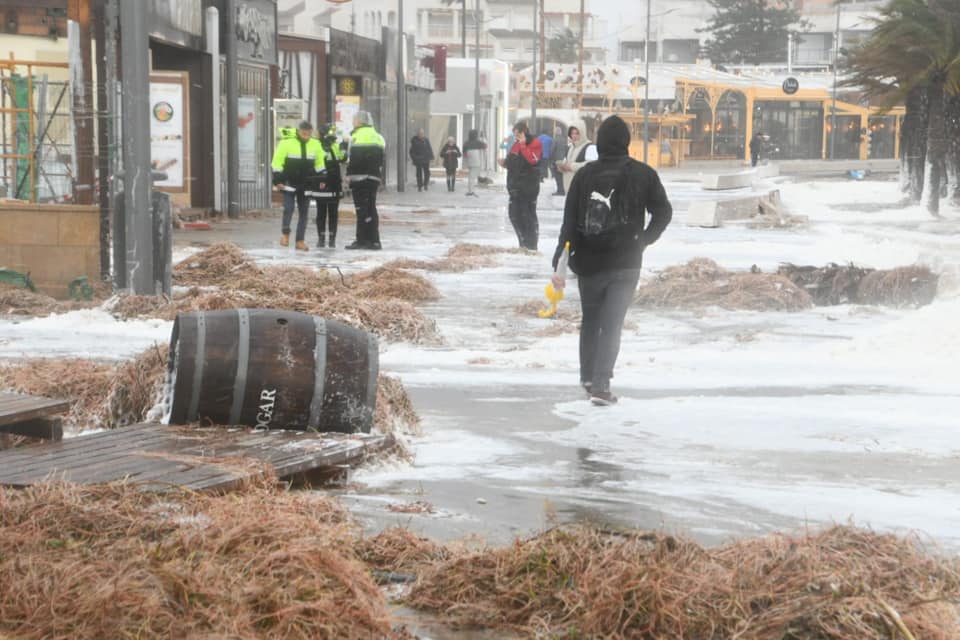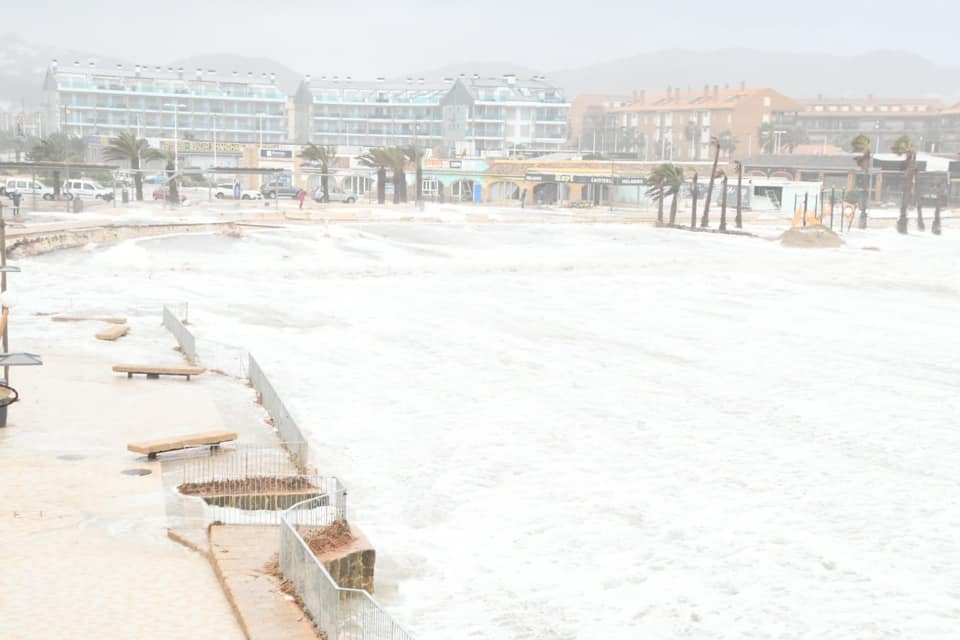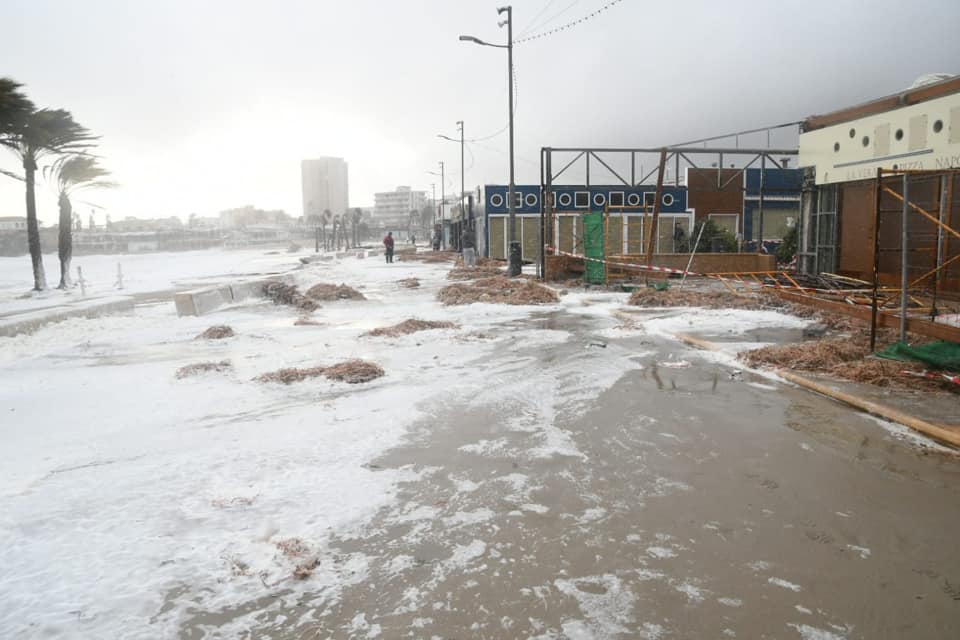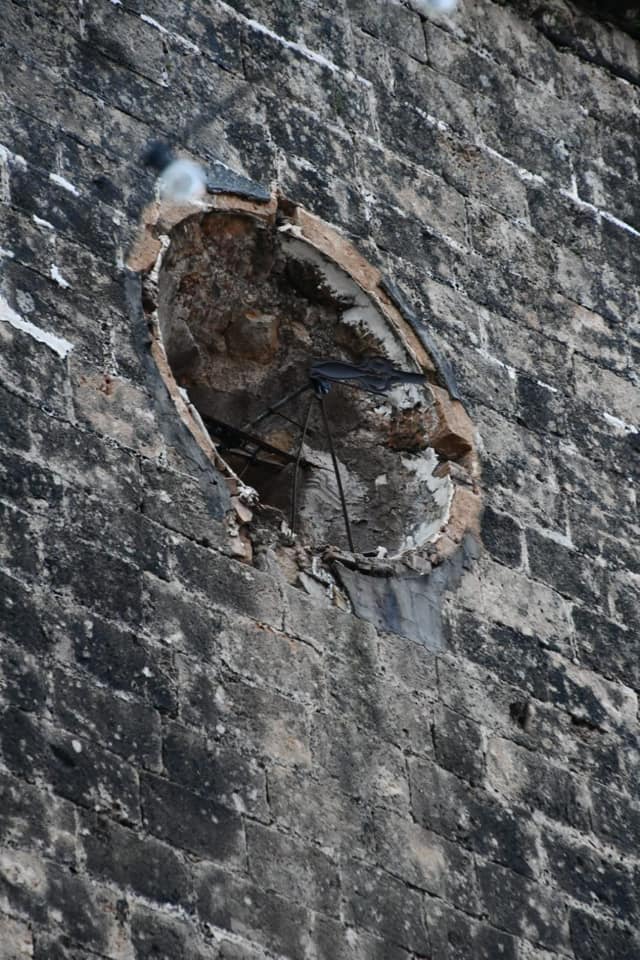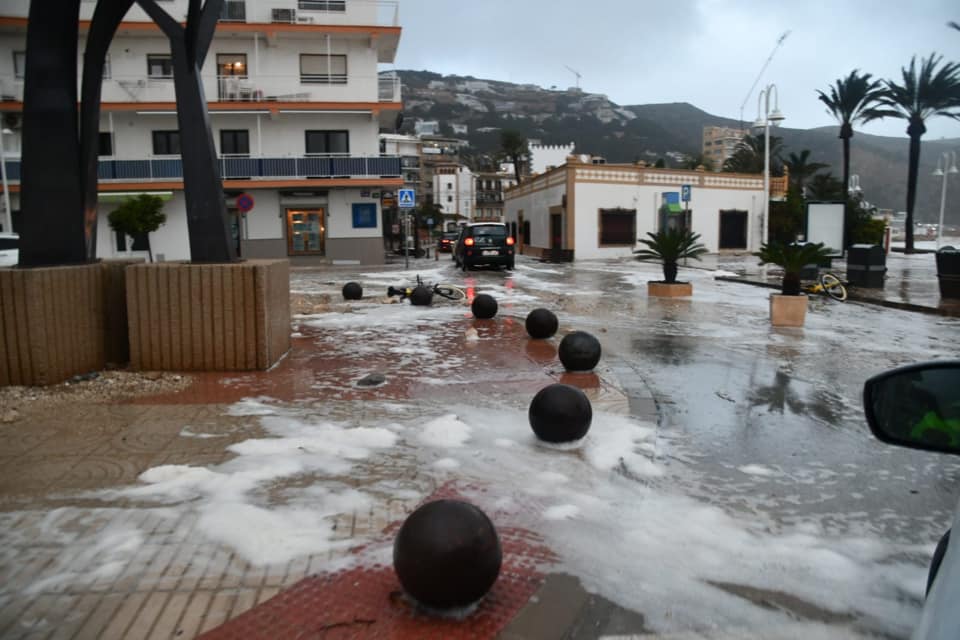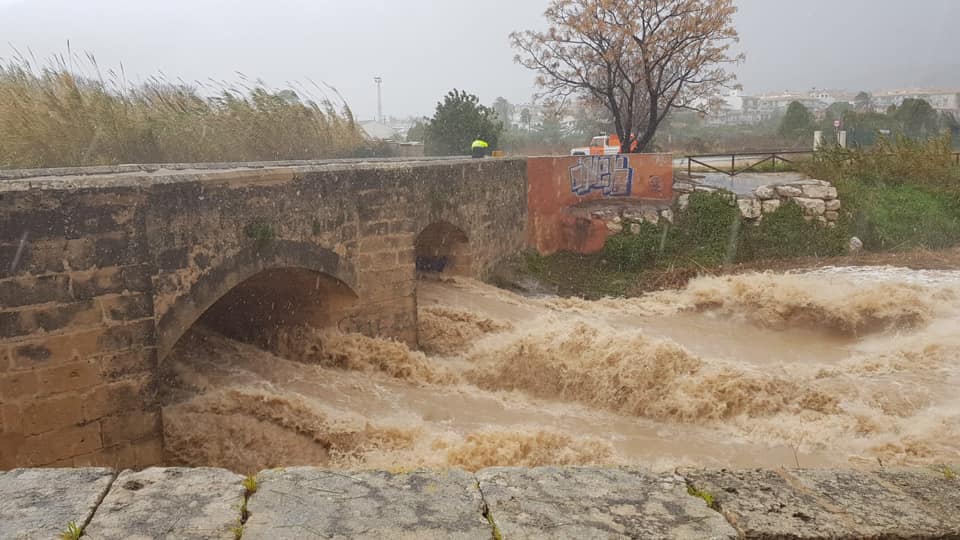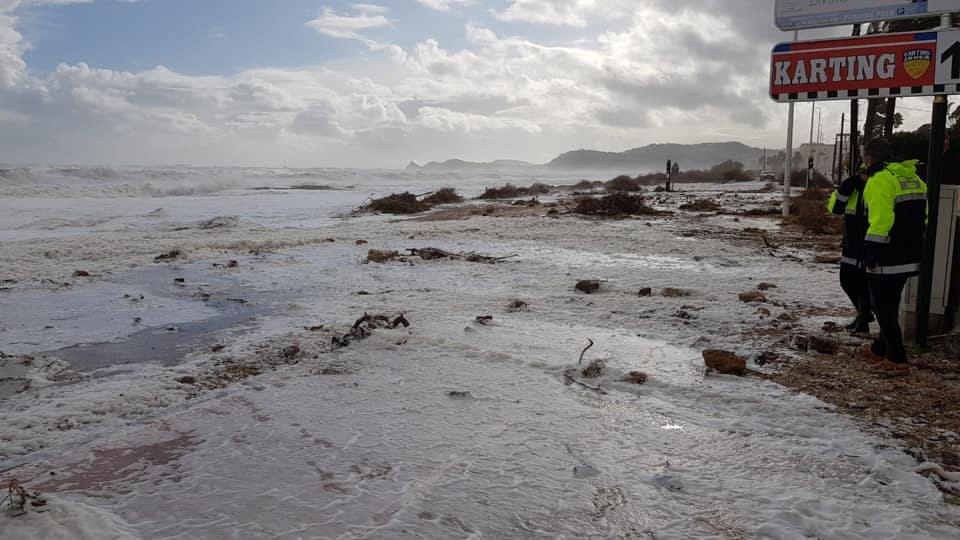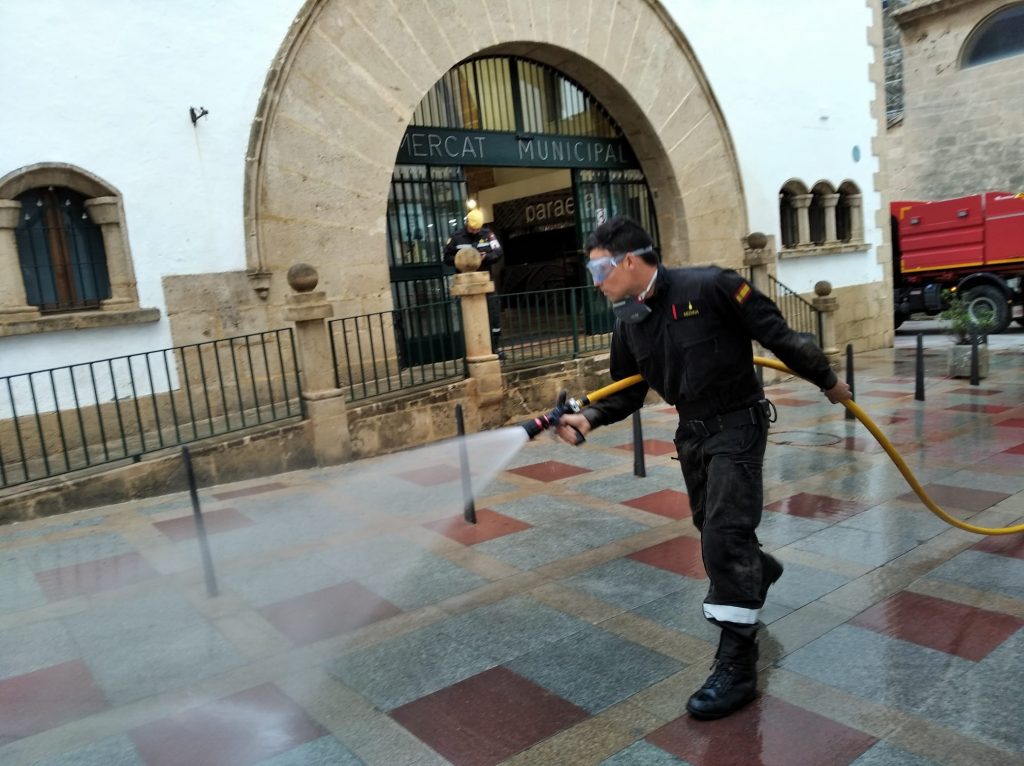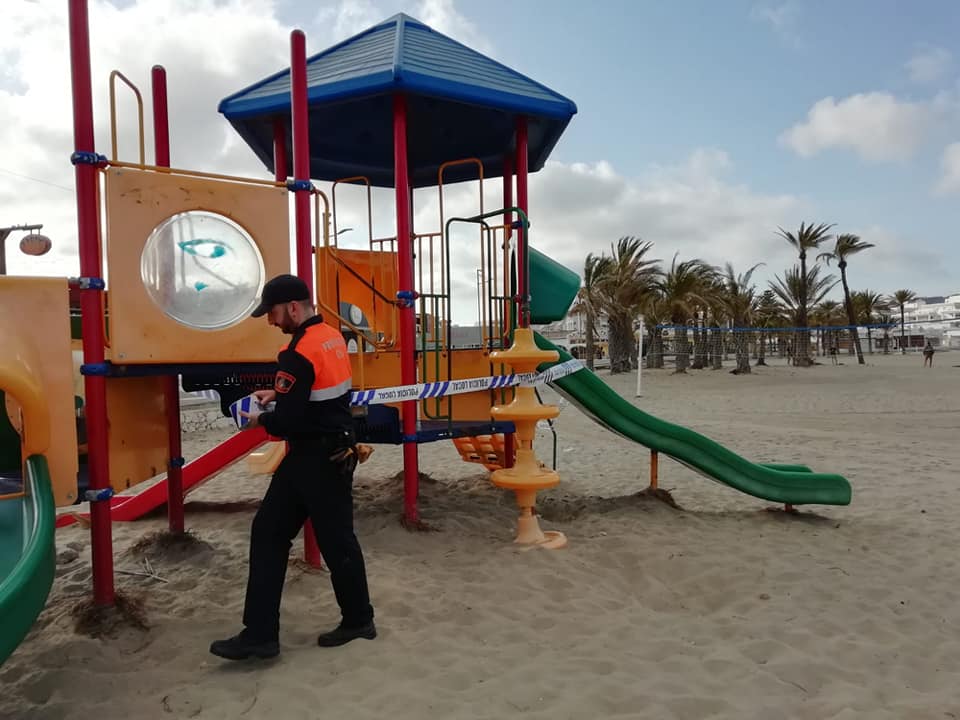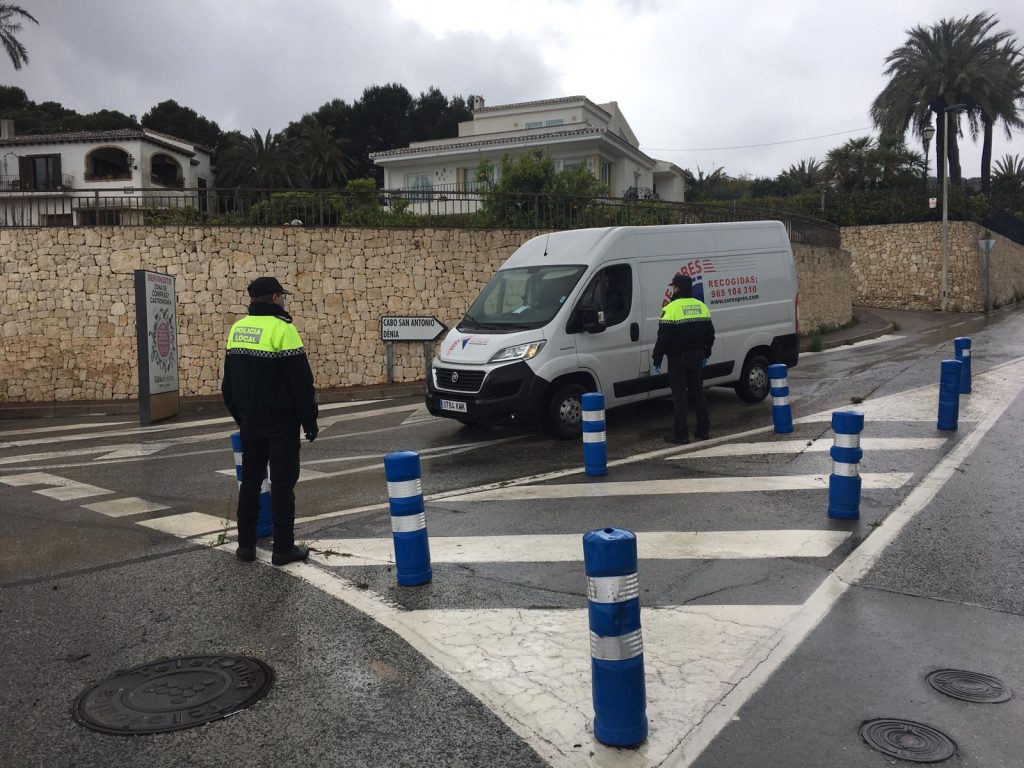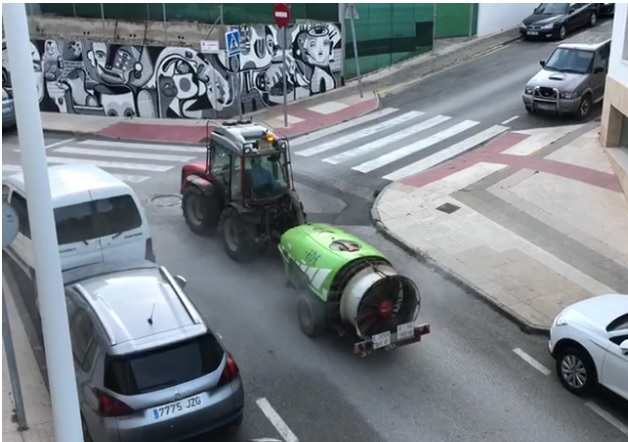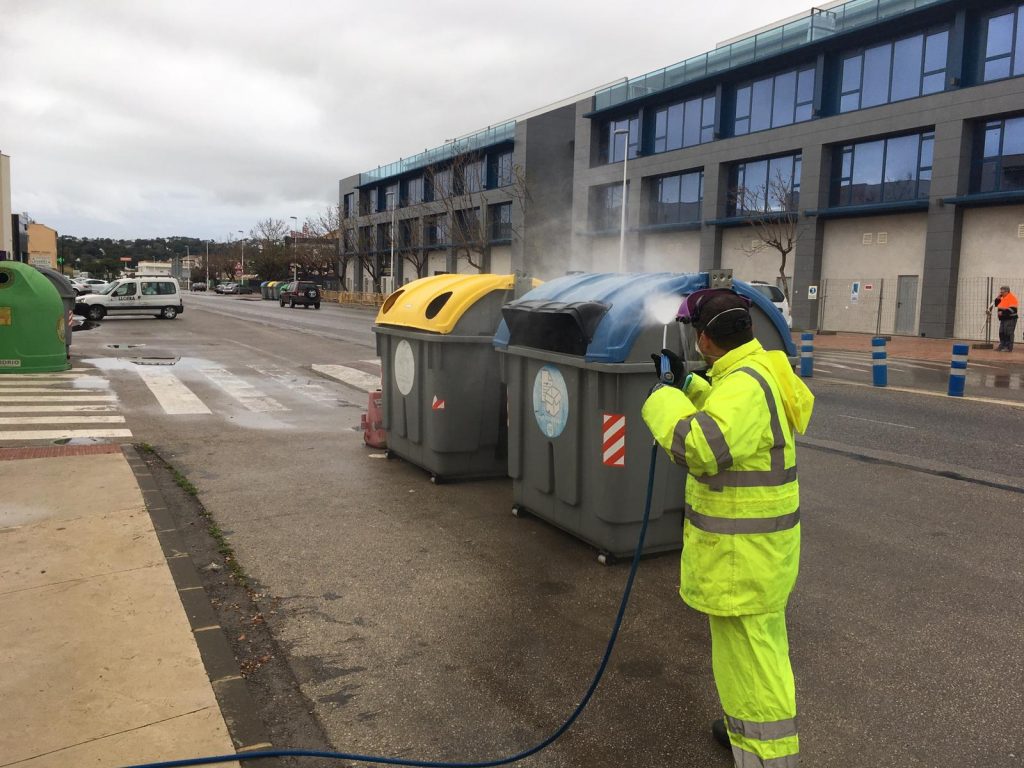The Year in Review – Part 1: A Storm Rising
A look back at the first three months of an extraordinary year that has been 2020.
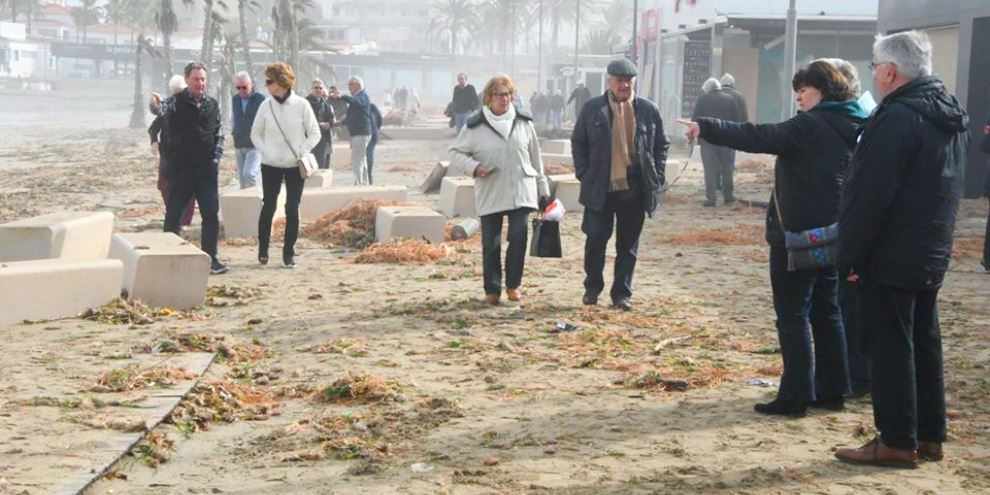
January 2020
Swimming
The year opened as it had always done for over two decades in Xàbia with the traditional New Year’s Day swim on the Arenal beach which raised just over 2,700 euros, much of which would be donated to the family of Luke Thomas, a local sportsman who suffered life-changing injuries in 2019 when he was hit by a car driven by an unlicensed and uninsured driver.
- Work began on two new roundabouts on the CV-734 Xàbia-Gata road, a million-euro project that would divide opinion on their necessity, but would provide safer access to the municipal crematorium and cemetery as well as the proposed industrial estate. They were completed in July, funded entirely by the regional government which is responsible for the road.
- Repairs and improvements to pavements in Avenida del Pla, Arenal were finally completed after several months of inconvenience for local traders and the public – but then some of it had to be dug up again after the company contracted to carry out the work had not used the blocks required in the contract. It was eventually completed for good a month later. In the port, work began on improving the pavements in Avenida del Furs.
The Visit of Gloria
On Friday 17th, AEMET issued a weather warning for the potential for high winds and stormy seas, accompanied by heavy rain at times, in the first storm of 2020. Four days later, Storm Gloria had left her mark on the town as the most savage maritime storm in living memory smashed into the coastline of Xàbia, causing extensive damage to businesses, property and infrastructure amounting to some 440,000 euros. Winds gusted over 100 km/h in places, tearing the clock face from the bell tower of San Bartolomé church, whilst waves estimated to have reach over 8 metres in height swept over the sand retaining wall on the Arenal beach and caused significant damage along the promenade. Whilst the initial clean-up was completed within days, the worst affected areas would not be repaired for some months.
- The storm postponed the animal blessing of the fiesta of San Antonio Abad; it would take place a month later. In the heart of the old town, the bull-running took place around the church square in honour of San Sebastian, the patron saint of Xàbia.
February 2020
Carnaval 2020
The Fogueres Commission organised another successful Carnaval with two very popular fancy dress processions, one for the kids and a second for the adults, followed by music and dancing late into the night. After the coronavirus swept into Spain just a few weeks later, it would be the last fiesta of the year.
- The Granadella Trail was held for the first time in three years, having been forced to take an extended break as the area recovered after the devastating fire that swept across it in 2016.
- Calle Pic Tort in the Granadella Zone, a narrow road that winds up from the cove and provides the exit route from the popular beach area during the busier summer months, was opened after re-surfacing and marked out for parking.
- Work began on the demolishing of the old Triana bridge over the mouth of the river Gorgos, a crossing that provides a direct link between the port and the Arenal zone.
- It was reported that residents of Xàbia had recycled 121 garments during 2019, a rise of 11% on the previous year.
- AMJASA carried out urgent repair work on the water supply network and river containment wall alongside the river Gorgos which suffered significant damage during Storm Gloria.
- The Moors & Christians Xàbia revealed its new captains and standard bearers for 2020 in its annual gala dinner at Salones Carrasco. The 2020 edition would ultimately be cancelled as the world struggled against the coronavirus pandemic.
- The Children’s Council was charged with providing their ideas for the re-design of the parks in Thiviers and Freginal which would be completely renovated.
March 2020
- The Protección Civil Xàbia received accreditation for fire-fighting operations, one of the first of the volunteer bodies in the Comunidad Valenciana to be officially approved to work alongside professional fire-fighting services.
Coronavirus arrives in town
On Friday 13th March 2020, the world started to change. Spanish Prime Minister Pedro Sánchez addressed the nation to announce a ‘state of alarm’ that would confine citizens to their homes for two weeks as the country battled a significant rise in coronavirus infections. That weekend, the country began to shut down and the streets fell quiet. Within days, the borders would be closed. Only supermarkets would remain open, strictly controlled, and face masks would have to be worn.
Within a few days, people gathered on their balconies or in their doorways to clap the essential workers; on March 19th – Día de San José – music filled the air as local musicians played their instruments in honour of what should have been the final day of the ‘fallas’.
As the pandemic swept across Europe, it soon became clear that the national lockdown would be extended and the Spanish Government confirmed that it would last until at least Easter. And maybe even beyond. The fiestas of Jesús Nazareno, the biggest religious celebrations in Xàbia, were cancelled. The MontgoRock music festival was re-scheduled for September. Members of the armed forces arrived in Xàbia to disinfect the streets and plazas. By the end of the month, Spain declared that all non-essential activity had to be suspended as the infection curve continued to refuse to flatten.
Surely, things would be better soon …










